Do you think you might be depressed?
Take our self-assessment, and share the results with your doctor or someone else you trust.


Depression facts
Talking about depression can be hard, but it’s important. Learning about it can help make the conversation easier.
What causes depression?
Depression can affect anyone — regardless of age, culture, lifestyle, or family history. Many factors can impact mental health — including biology, environment, and challenging life events. There’s no single cause, and it isn’t anyone’s fault.
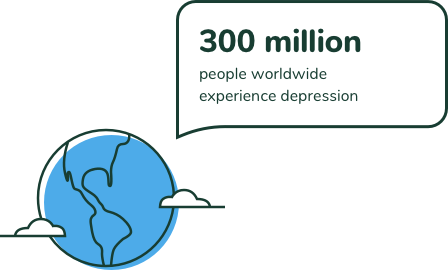
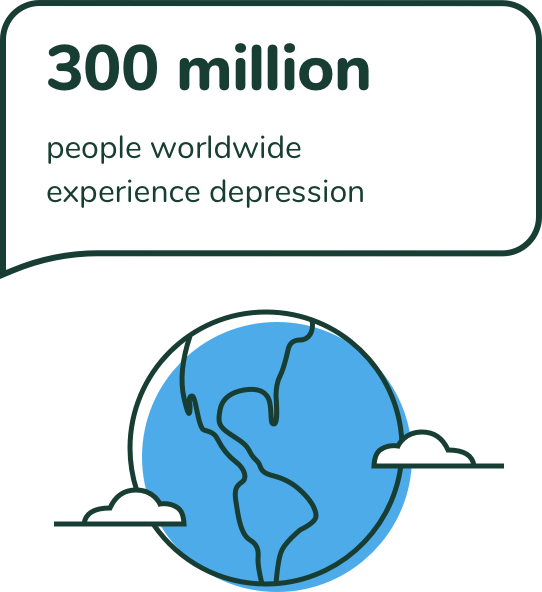
Source: World Health Organization
Help for depression
For some people, practicing self-care through things like meditation and exercise can help ease symptoms of depression. Others may need professional support, which can include counseling, medication, or a combination of both. No matter what your situation is, it’s important to know that help is available, and it’s OK to reach out.

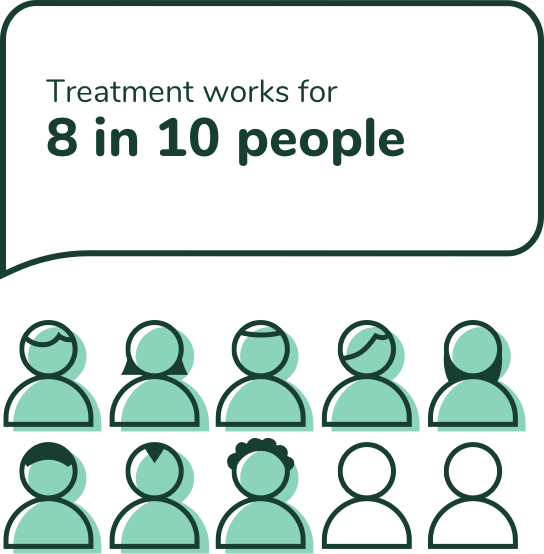
Source: Mental Health America
Exploring attitudes, beliefs, and stigma
Many people avoid talking about depression — and getting treatment — because of perceived negative stereotypes about people with mental health conditions. We still have work to do to end stigma — but the results of our 2017 national poll show that most people are understanding, accepting, and supportive:
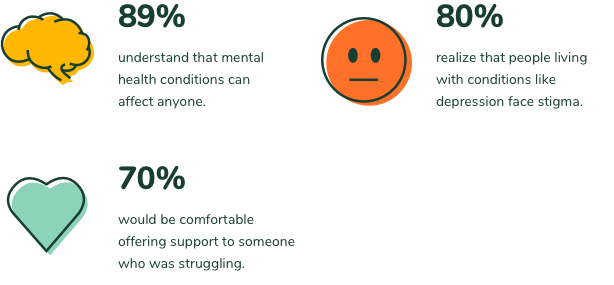
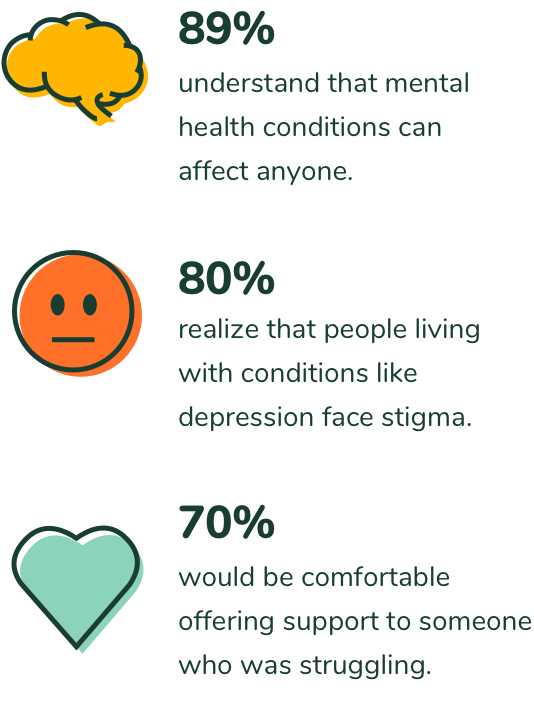
Source: Kaiser Permanente consumer poll, 2017





